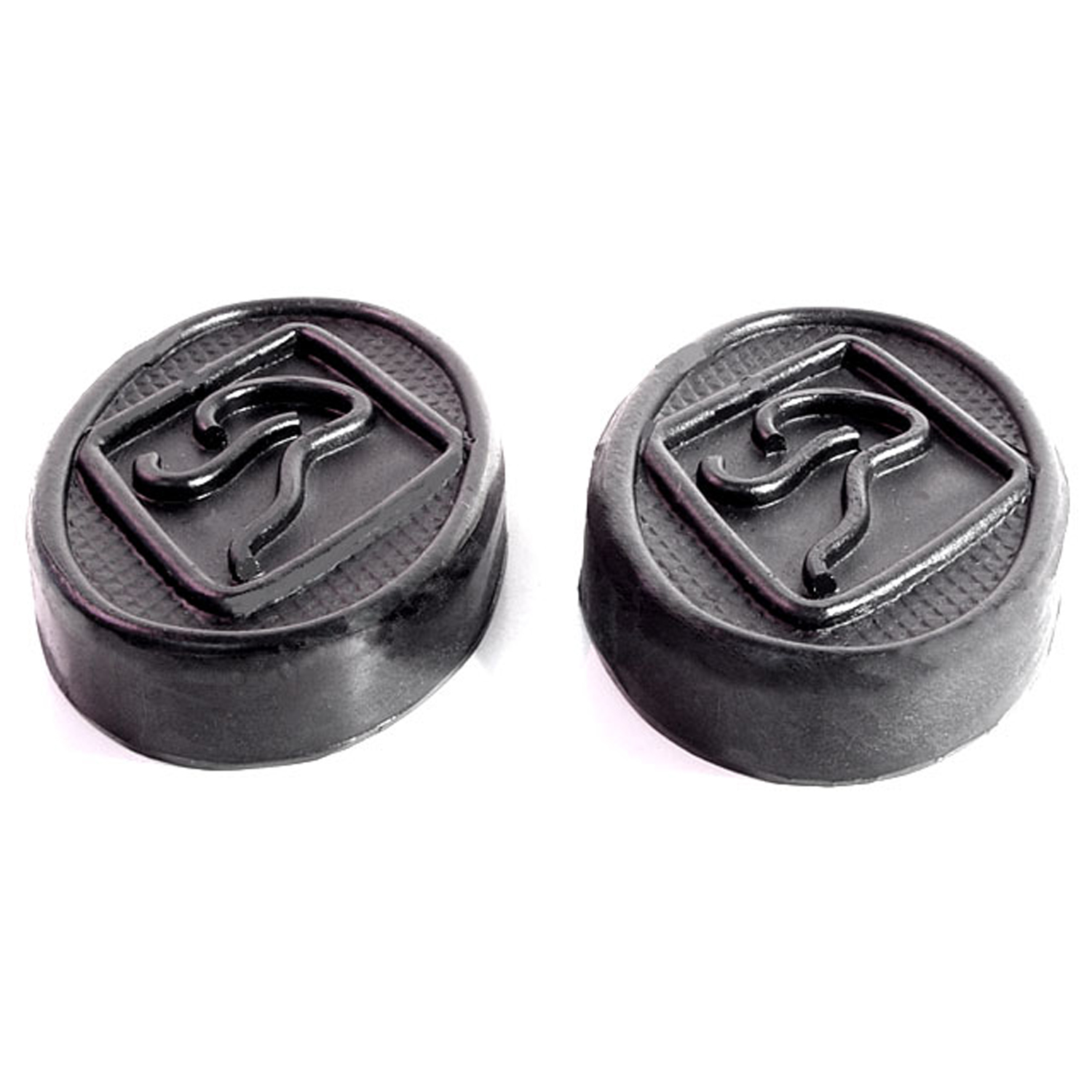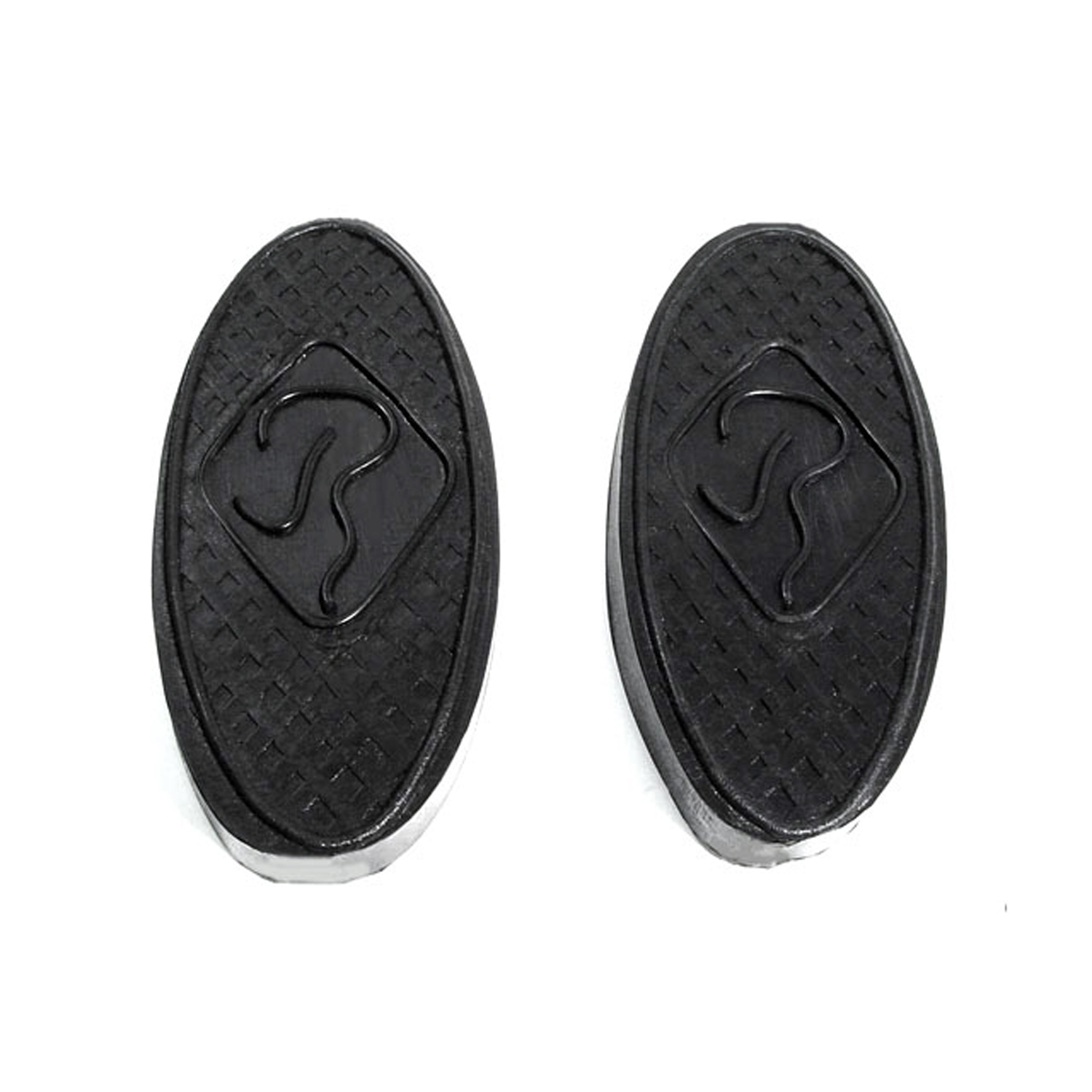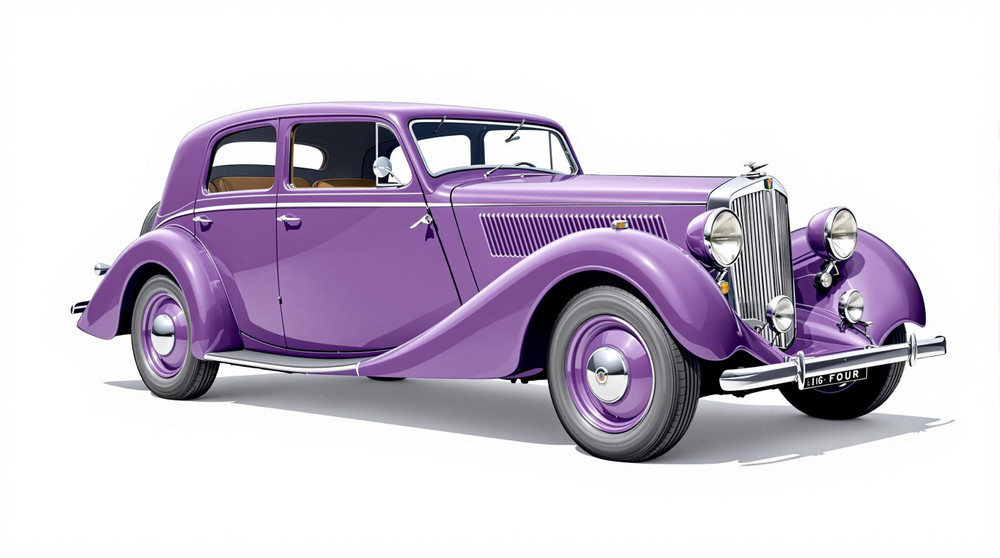Image of 1937 Riley Big Four, Note: These illustrations use artistic license and may differ from actual historical models.
Performance Metrics
Fundamental Metrics
Emotional Appeal
MMP Rating
| Engine Specifications | |
|---|---|
| Engine: | 4-cylinder in-line |
| Displacement: | 1.5L |
| Horsepower: | Estimated 50-60 hp |
| Torque: | Not available |
| Compression Ratio: | Not available |
| Ignition System: | Coil ignition |
| Cooling System: | Water-cooled |
| Performance Specifications | |
| 0-60 Time: | Not available |
| 1/4 Mile Time: | Not available |
| Top Speed: | 75-85 mph |
| Transmission and Drive | |
| Drive Type: | Rear-wheel drive |
| Transmission Type: | 4-speed manual |
| Fuel and Efficiency | |
| Fuel System Type: | Carburetor |
| MPG: | Not available |
| Dimensions and Brakes | |
| Brakes: | Drum brakes |
| Wheelbase: | 112 inches |
| Weight: | Estimated 2,500 lbs |
Note: Specifications for classic cars are given to the best of our ability, considering the limited and variant data available.
Introduction
The 1937 Riley Big Four is not just a car; it's a rolling testament to pre-war automotive excellence. Born from the creative minds at Riley, one of Britain's most innovative car manufacturers of the early 20th century, this vehicle stands as a pinnacle of design and engineering of its era. With its unique blend of luxury and performance, the Big Four carved out a distinct niche in automotive history. One particularly intriguing aspect of this vehicle is its advanced engine design, which was ahead of its time and became a cornerstone for future developments in Riley's engineering.
Design and Innovation
The Riley Big Four's exterior styling exudes an air of elegance and sophistication that was characteristic of the 1930s. Its sweeping lines and elongated bonnet hinted at the power that lay beneath, while the upright grille and large headlamps commanded respect on the road. The interior was a sanctuary of luxury, with rich leather upholstery and polished wood accents that spoke to the craftsmanship of the age. Technologically, the Big Four was a marvel with its 2.5-liter engine featuring hemispherical combustion chambers and twin camshafts, an innovation that provided exceptional performance for its time.
Color options for the Big Four were reflective of its upscale market positioning, with deep blues, blacks, and maroons being popular choices that accentuated its stately lines. The most iconic body style was undoubtedly the saloon, which offered both comfort and elegance, though other body styles like the tourer appealed to those seeking an open-air experience.
Historical Significance
The Riley Big Four's influence on automotive design cannot be overstated. Its engine configuration inspired future generations of performance vehicles and set a standard for what could be achieved in terms of power and efficiency. At a time when many cars were still quite rudimentary in their mechanical design, the Big Four stood out as a beacon of innovation.
Performance and Handling
On the road, the 1937 Riley Big Four delivered exhilarating performance with a top speed that could reach up to 85 mph—a remarkable feat for its time. Acceleration was brisk as well, with reports of 0-60 mph times that could rival many post-war sports cars. Handling was precise and responsive, allowing drivers to navigate winding roads with confidence. The driving experience was further enhanced by the throaty growl of the engine—a sound that became synonymous with Riley's sporting pedigree.
Ownership Experience
The Big Four served various roles from a luxurious daily driver to a weekend showpiece or even as a competitive racer in amateur events. Maintenance required a knowledgeable hand, but many owners found joy in tinkering with their machines. Reliability was commendable for its era, though parts can be scarce today.
Fun Facts
Riley vehicles were known to be owned by celebrities and aristocrats who appreciated their blend of performance and luxury. The Big Four also held several endurance records in its class during its heyday. While it faced criticism for being costly in its time, today it is lauded for its forward-thinking design.
Collector's Information
Today, the 1937 Riley Big Four is a prized possession among classic car enthusiasts. Production numbers were limited due to their hand-built nature; it is estimated that only several hundred units were made. As such, they are quite rare on the collector's market. In terms of value range, pristine examples can fetch significant sums often upwards into six figures depending on provenance and condition.
Conclusion
The 1937 Riley Big Four is more than just an old car; it's an artifact from an era where craftsmanship met performance in ways that still resonate today. With its combination of luxury features, innovative technology, and spirited driving dynamics, it remains an important piece of automotive history worth celebrating.
1937 Riley Big Four Catalog of Parts
 1937 Riley BIG FOUR Clutch and Brake Pedal Pads. 2-1/4" wide X 3-1/2" long-CB 49Clutch and Brake Pedal Pads. 2-1/4" wide X 3-1/2" long. Pair
1937 Riley BIG FOUR Clutch and Brake Pedal Pads. 2-1/4" wide X 3-1/2" long-CB 49Clutch and Brake Pedal Pads. 2-1/4" wide X 3-1/2" long. Pair 1937 Riley BIG FOUR Clutch and Brake Pedal Pads. 2-1/4" wide X 4-7/8" long-CB 50Clutch and Brake Pedal Pads. 2-1/4" wide X 4-7/8" long. Pair
1937 Riley BIG FOUR Clutch and Brake Pedal Pads. 2-1/4" wide X 4-7/8" long-CB 50Clutch and Brake Pedal Pads. 2-1/4" wide X 4-7/8" long. PairWhy Choose Metro?
For over 100 years, Metro Moulded Parts has been the pinnacle of quality in classic car restoration parts. Our commitment to precision and authenticity in every component ensures a perfect fit and an OEM-level appearance.
- Expert Craftsmanship & Quality: Each part is a testament to our dedication to reliability and perfection, crafted from original designs and thoroughly tested.
- Advanced Technology: We use cutting-edge techniques to create flawless, long-lasting parts that surpass others in performance.
- SuperSoft Sponge – The Ultimate Door Seal: Not only are our door seals 30% softer than competitors', but they're also guaranteed to never leak. They effectively reduce wind and road noise, enhancing your classic car's comfort and driving experience.
- Proudly American: Our parts are a product of American craftsmanship, made in the USA with a spirit of excellence and heritage.
- Unrivaled Warranty: We back our products with a 30-year industry-leading warranty, a testament to our confidence in their quality.
Join us in preserving the legacy of classic cars with parts that are crafted for perfection, not just made.

